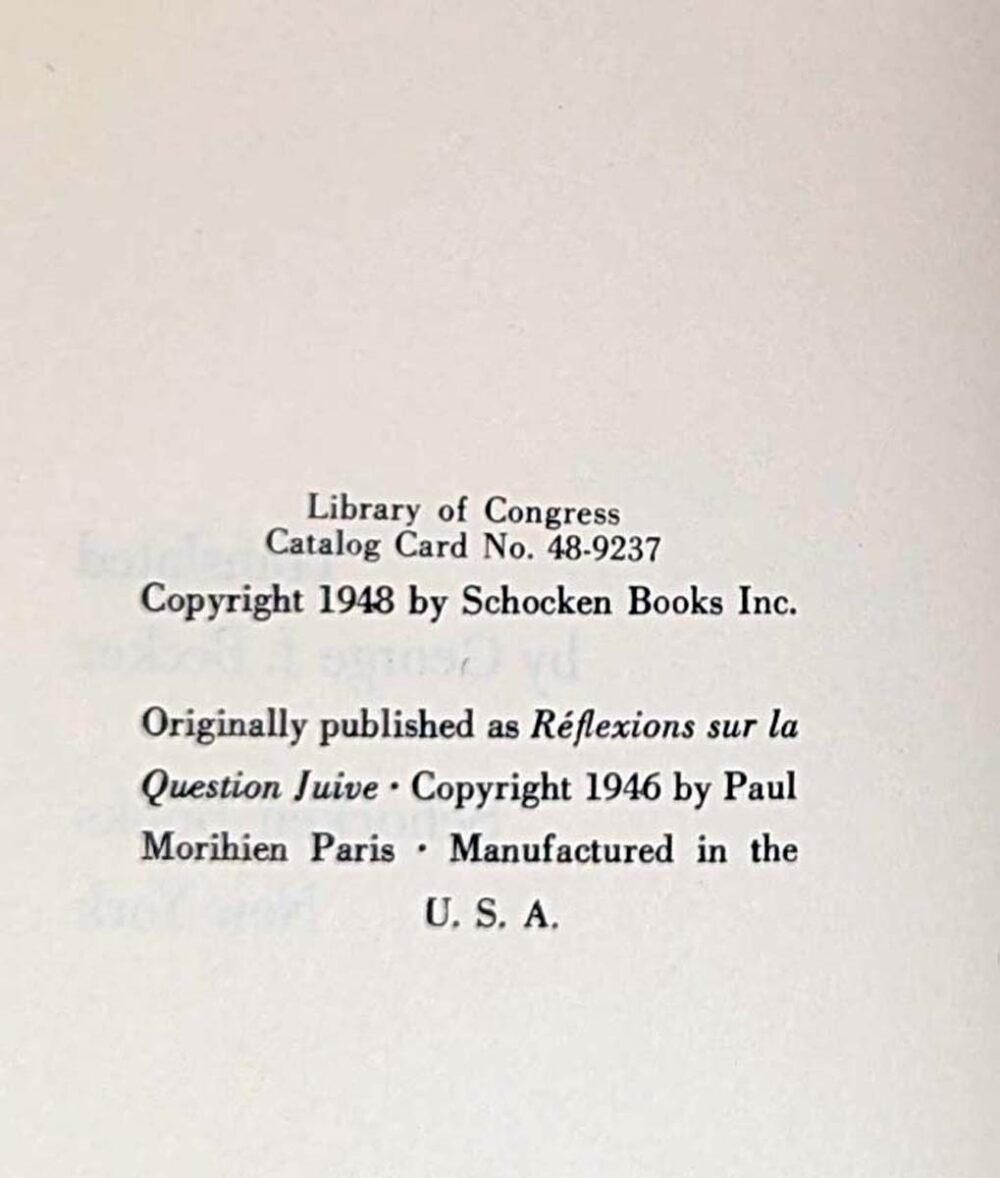Anti-Semite and Jew (Réflexions sur la question juive) – Jean-Paul Sartre (1948)
This provocative philosophical essay by Jean-Paul Sartre dissects the psychology of anti-Semitism, analyzing the bigot’s need for scapegoats and the resulting alienation of Jewish identity. Written post-WWII, Sartre argues that anti-Semitism (and all racism) is a form of “bad faith”—a self-deceptive attempt to evade personal responsibility by blaming others. The book remains a fiery, controversial examination of hatred’s roots.
For Readers Who’d Engage With:
- The Origins of Totalitarianism (1951) – Hannah Arendt – Links anti-Semitism to broader fascist logic
- Black Skin, White Masks (1952) – Frantz Fanon – Sartre-influenced critique of colonial racism
- The Imaginary Jew (1980) – Alain Finkielkraut – Updates Sartre’s ideas for postwar Jewish identity
“A mirror held up to hatred—and the face it reveals is our own.”
















